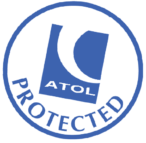Capital: Avarua
Time zone: GMT – 10
Telephone services: Country Code: 682
Outgoing Code: 00
Emergency telephone numbers: Police – 999. Ambulance and hospital – 998. Fire – 996
Tourist information: Tourism Council of the South Pacific, 375 Upper Richmond Road West, London, SW14 7WX Tel: (020) 8392 1838 or (01344) 717 496 Fax: (020) 8392 1318.
Passport information: Required by all except nationals of New Zealand. Passports should be valid for 12 months after the intended date of departure. Return Ticket Required. Regulations may be subject to change at short notice. Contact the embassy before departure.
Visa information: Required for business purposes. Not required for tourist purposes if staying for less than 31 days. NOTE: Proof of arranged accommodation and sufficient funds for length of stay will be required.
Health information: Polio, Typhoid: Vaccination recommended.
Food & drink: Water is considered drinkable, normal precautions should be observed with food.
Currency: New Zealand Dollar (NZ$) = 100 cents.
Both credit cards and travellers cheques are accepted. Australian dollars are the preferred currency in travellers cheques.
ATM availability: Unavailable.
Cost of living: Can be expensive in the tourist centres. However, accommodation is increasing yearly, which may bring a price decrease in the resorts.
Languages: Maori. English widely spoken
Weather: Hot climate throughout the year. Most rain Nov – Apr.
Electricity: 240 Volts Ac, 50 Hz
Post: Up to 2 weeks.
Transport: The cheapest way to travel around the island is on an Inter-Island cargo ship. On Rarotonga there is a bus service and plenty of taxis. ROAD: Vehicles can be hired from a number of outlets. DOCUMENTATION: A current Cook Islands driving licence is required and available from the police station in Avarua on presentation of a national licence or IDP.
Special information: Religious celebrations, for instance Gospel Day in October, are taken very seriously and should be respected. Beach-wear should not be worn in the towns. Usual social courtesies should be followed.

